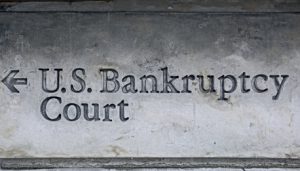If you are in the midst of litigation and one parties files for bankruptcy, a common belief is that those proceedings will automatically terminate. Rather, depending on the type of bankruptcy, the type of debtor and the area of law involved, prior proceedings may either continue in the state court or proceed in the federal court–the litigation does not automatically terminate.
In 2008, during the Great Recession, about 90% of litigation proceedings involving a party that filed bankruptcy were moved into the bankruptcy courts for litigation. Because the complete economic impact of COVID-19 remains uncertain, this same trend is not yet measurable today. However, it is important to be prepared in the case that the coming months show a shift because the aftermath of the pandemic will invariably leave many with debts they cannot afford.
When someone files for bankruptcy, an automatic stay acts as an injunction to regulate creditors’ attempts to collect debts and as a protective measure for debtors. Often, when creditors receive bankruptcy notices, they quit because they assume there are no alternatives against the debtor. However, with proper permission from the bankruptcy court, cases in state court can proceed simultaneously with the debtors case in bankruptcy court or be moved into the bankruptcy court itself for continued litigation as an adversary proceeding.
With the help of an experienced attorney, a person (or business) involved in any lawsuit can ask the bankruptcy court in which the debtor has filed to allow the previous matter to proceed. If granting the motion will not affect the bankruptcy case and the moving party will otherwise suffer harm, the court may grant the motion. Common instances of courts granting such a motion are mortgage lenders who will lose money if they have to wait until after the bankruptcy case closes; when a car lender seeks to repossess the vehicle because the debtor will not sign a new contract; when a landlord has already begun eviction proceedings; when a debt is not dischargeable because of fraud and the creditor has spent significant time and money litigating the case; or when the creditor has some other compelling reason.
If the creditor fails to make the motion, then the automatic stay will remain in place until the bankruptcy is over, and if the creditor’s debt was discharged in the bankruptcy, their lawsuit will likewise be dismissed. As such, finding an attorney who is able to successfully guide creditors through a debtor filing bankruptcy could determine whether the case is resolved favorably or dismissed.
Winslow & McCurry has attorneys with experience litigating in both state and federal courts under the aforementioned circumstances. If you have questions regarding a party to litigation filing bankruptcy, please don’t hesitate to reach out to Winslow & McCurry at (804) 423-1382 or info@wmmlegal.com to schedule a consultation. We would like to help.
